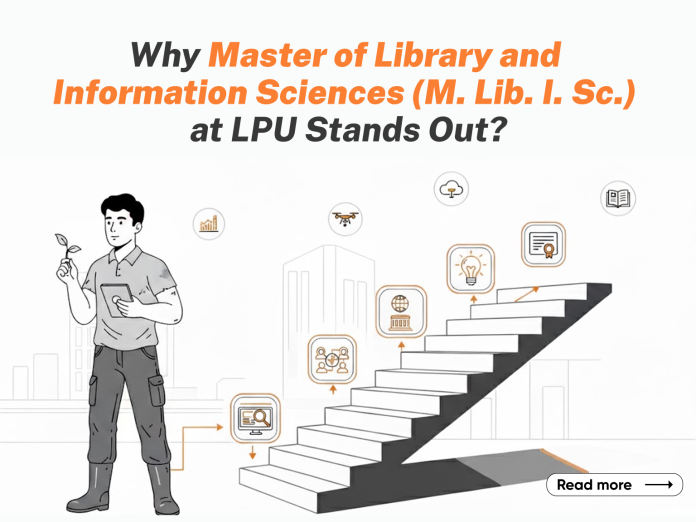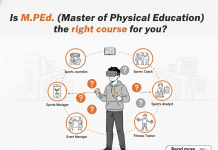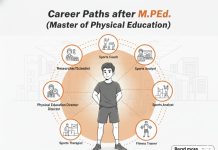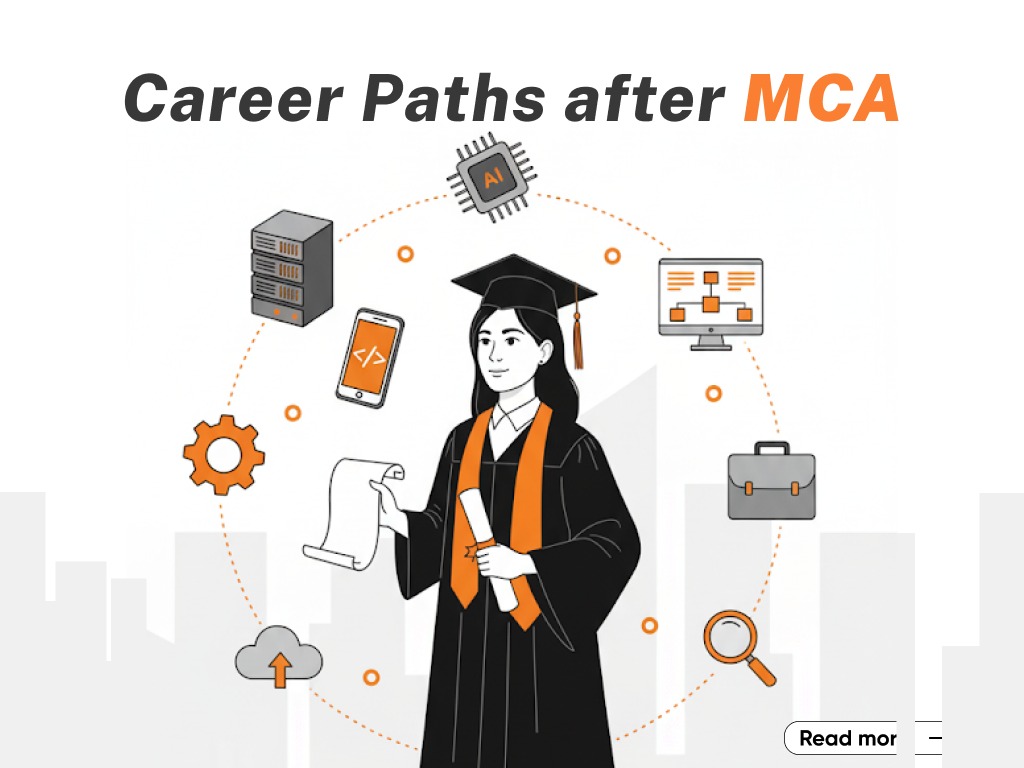- Introduction
- Why Choose M. Lib. I. Sc. at LPU?
- Outstanding Placement Opportunities
- Advanced Library Infrastructure & Digital Resources
- Empowering Students with Skill Development & Global Exposure
- Information Technology Integration in Library Science
- LPU at a Glance
- LPUNEST – Gateway to a Career in Library & Information Science
- Final Words
- Frequently Asked Questions (FAQs)
Why Choosing the Right Postgraduate Course Matters
In today’s knowledge-driven economy, information is more valuable than ever. From education and research to corporate decision-making and digital innovation, the ability to organize, analyze, and manage information has become a crucial skill. This is where a postgraduate programme like the Master of Library and Information Sciences (MLIS) makes a real difference.
Unlike the traditional perception of library sciences being confined to bookshelves and cataloguing, modern MLIS programmes are about knowledge leadership, digital transformation, and advanced information management. Choosing the right university for this journey is equally critical, as it determines not only the quality of education but also the exposure, opportunities, and career outcomes.
At Lovely Professional University (LPU), the MLIS programme is designed to go beyond conventional librarianship. It prepares students to be digital information experts, research facilitators, knowledge managers, and academic leaders, with a strong blend of traditional and technological skills.
| Did You Know?
According to the International Federation of Library Associations (IFLA), information professionals are now considered key pillars in supporting research, innovation, and digital transformation worldwide. |
Why Choose MLIS at LPU?
When considering an MLIS programme, students often look for more than just a degree—they want global exposure, advanced infrastructure, industry connections, and strong placement opportunities. LPU stands out for several reasons:
- Industry-Aligned Curriculum – Courses are regularly updated to include topics like digital curation, metadata management, ICT tools, knowledge organization systems, and research data management.
- Experienced Faculty – LPU’s faculty members include experienced librarians, researchers, and industry practitioners who bring both academic rigor and real-world insight.
- Global Exposure – With students from 50+ countries, LPU offers a multicultural learning environment that enriches academic discussions and perspectives.
- Strong Research Focus – Students are encouraged to participate in conferences, seminars, workshops, and research projects that build analytical and academic skills.
- Interdisciplinary Learning – MLIS students can collaborate with peers from IT, management, and communication disciplines, gaining broader insights into how information is managed across industries.
At its core, LPU’s MLIS programme focuses on preparing future-ready professionals who can adapt to the evolving demands of digital libraries, corporate knowledge hubs, research institutions, and international opportunities.
Placement Opportunities After MLIS at LPU
Placement is one of the strongest benchmarks of any postgraduate programme, and LPU has consistently built a track record of successful placements for its MLIS graduates.
Here’s what makes placements at LPU stand out:
- Dedicated Career Services – LPU’s Career & Professional Enhancement cell provides interview training, soft skills workshops, and industry connections.
- Diverse Recruiters – Graduates find opportunities in universities, government organizations, IT firms, publishing houses, NGOs, and corporate companies.
- Global Placement Network – LPU alumni work not only in India but also in the USA, UK, Canada, Australia, and Middle East, where demand for knowledge professionals is strong.
- Internships and Live Projects – MLIS students at LPU gain practical experience by working on real-time digital library management, archiving, and knowledge systems projects.
Some of the top recruiters include:
- Academic Institutions (IITs, NITs, Central & State Universities)
- Corporate IT Firms (Infosys, TCS, Wipro, IBM)
- Government Bodies (National Archives, DRDO, ISRO, RBI)
- Publishing Houses (Pearson, Elsevier, Times Group)
- International Organizations (UNESCO, World Bank libraries)
| Did You Know?
The National Digital Library of India hosts more than 80 million resources and requires experts in digital cataloguing, metadata, and information retrieval skills that MLIS graduates from LPU are trained in. |
Advanced Infrastructure & Digital Resources at LPU
One of the biggest strengths of LPU is its state-of-the-art infrastructure, which supports both traditional and digital aspects of Library and Information Sciences.
Here’s what MLIS students benefit from:
- Central Library – A massive, fully automated library with print, e-journals, e-books, and multimedia resources.
- Digital Libraries – Access to Scopus, JSTOR, ProQuest, Springer, IEEE, and other databases for research and academic projects.
- KOHA & DSpace Training – Students gain hands-on experience in library automation software widely used in India and abroad.
- Research Labs & ICT Facilities – Specialized labs for digital information management, metadata curation, and knowledge systems.
- 24×7 Access – LPU provides round-the-clock access to digital resources, ensuring flexibility for both research and professional preparation.
- Collaborations & Resource Sharing – LPU is part of national and international library networks that give students access to millions of research documents worldwide.
The university’s focus on technology integration and global standards ensures that MLIS graduates are fully prepared to manage and innovate in the digital-first information landscape.
Key Domains of Study in MLIS at LPU
The MLIS programme at LPU is designed to provide a holistic learning experience that covers both traditional knowledge systems and modern digital advancements. Students are exposed to a wide spectrum of domains that prepare them for careers in academia, research, and industry.
Some of the core areas of study include:
- Information & Knowledge Organization – Advanced cataloguing, classification systems, and metadata management.
- Digital Library Systems – Training in software like KOHA, DSpace, Greenstone, and cloud-based solutions.
- Research Methodology – Quantitative and qualitative research skills, data analytics, and academic writing.
- Information Retrieval & Bibliometrics – Tools for effective information access, analysis, and evaluation.
- ICT Applications in Libraries – Integration of AI, machine learning, and blockchain in knowledge management.
- Archiving & Preservation – Methods for managing physical, digital, and hybrid information repositories.
- Knowledge Management & Corporate Libraries – Organizational learning, data curation, and business information systems.
This multi-disciplinary curriculum ensures that students can pursue careers across education, IT, publishing, government, and corporate sectors.
Skills You’ll Gain in the MLIS Programme
One of the highlights of MLIS Course at LPU is the focus on skill development. Instead of limiting learning to theory, the programme emphasizes practical, industry-relevant competencies.
By the end of the degree, students graduate with:
- Digital Skills – Proficiency in library automation, digital curation, and metadata management.
- Research Skills – Ability to design, conduct, and analyze research projects using advanced methodologies.
- Data Analysis – Knowledge of bibliometrics, scientometrics, and data visualization tools.
- Technical Expertise – Hands-on training in open-source and commercial library management systems.
- Communication & Leadership – Skills in academic writing, public speaking, and organizational leadership.
- Problem-Solving – Applying innovative solutions to challenges in knowledge management and digital transformation.
These competencies make MLIS graduates from LPU stand out as future-ready knowledge professionals.
| Did You Know?
A report by the American Library Association (ALA) highlights that employers now prefer MLIS graduates with strong IT and data skills over traditional cataloguing expertise, showing how the field is rapidly evolving. |
Emerging Technologies Shaping Library & Information Sciences
The world of libraries and knowledge management is undergoing a digital revolution, and MLIS graduates are at the forefront of this change. At LPU, students are trained in cutting-edge technologies that are redefining the profession.
Some of the key emerging technologies in MLIS include:
- Artificial Intelligence (AI) – Smart search engines, chatbots for library queries, and AI-driven metadata tagging.
- Machine Learning (ML) – Personalized information retrieval and recommendation systems.
- Blockchain – Secure digital records, copyright management, and authentication of academic resources.
- Cloud Computing – Cloud-based library systems that allow seamless access to digital resources worldwide.
- Data Analytics & Big Data – Analyzing user behavior, research trends, and academic impact.
- Virtual & Augmented Reality (VR/AR) – Interactive archives and immersive educational resources.
- Digital Humanities Tools – Integrating information science with history, linguistics, and cultural studies.
By equipping students with these skills, LPU ensures that MLIS graduates are not only professionally relevant today but also future-proof in the coming decades.
Career Scope After MLIS at LPU
An MLIS degree opens doors to a wide range of careers in academia, research, corporate sectors, and international organizations. With the growing demand for digital information managers and knowledge leaders, graduates have access to rewarding opportunities.
Some of the key career avenues include:
- Academic Librarianship – Managing resources in universities, colleges, and schools.
- Digital Librarianship – Specializing in e-resources, online repositories, and cloud-based systems.
- Corporate Knowledge Managers – Handling organizational learning systems and business intelligence.
- Archivists & Records Managers – Preserving historical, cultural, and government documents.
- Research Consultants – Assisting scholars, institutions, and corporations with data-driven research.
- Data Curators – Managing large datasets for industries and research organizations.
- Information Analysts – Providing insights through bibliometrics, scientometrics, and analytics.
- Public Librarians – Engaging communities through information literacy and outreach programmes.
- Teaching & Academia – Building a career in higher education or pursuing a Ph.D. in Library and Information Sciences.
At LPU, students are not only trained for these roles but also supported through career counseling, internships, and global exposure.
LPU at a Glance
Lovely Professional University (LPU) is one of India’s most recognized universities, offering world-class education across disciplines, including Library and Information Sciences. For MLIS aspirants, LPU provides the perfect combination of academic excellence, digital infrastructure, and global exposure.
Key Highlights of LPU for MLIS Students:
- NAAC A++ Accreditation – A mark of academic quality and institutional excellence.
- NIRF Ranking – Recognized among the top universities in India.
- Global Recognition – Ranked by QS World Rankings and Times Higher Education (THE).
- Massive Campus – 600+ acres with state-of-the-art infrastructure.
- Diverse Student Body – 30,000+ students from all 28 states of India and 70+ countries.
- Digital Learning Ecosystem – Advanced smart classrooms, digital libraries, and e-learning platforms.
The presence of a multicultural campus environment makes LPU an excellent place for MLIS students to study, collaborate, and grow professionally.
| Did You Know?
LPU has tie-ups with 200+ international universities, enabling student exchange, internships, and collaborative research in fields like Library Science, Data Analytics, and Knowledge Management. |
LPUNEST – Gateway to a Career in Library & Information Science
For those aiming to pursue MLIS at LPU, the Lovely Professional University National Entrance and Scholarship Test (LPUNEST) serves as the primary admission gateway.
Why LPUNEST Matters?
- Dual Role – Acts as both an entrance exam and a scholarship test.
- Fair & Accessible – Conducted online with flexible scheduling.
- Scholarships – High scorers can avail up to 70% tuition fee waiver.
Admission Steps for MLIS at LPU:
- Register for LPUNEST on the official portal.
- Book your test slot and appear for the exam.
- Check your results and scholarship eligibility.
- Complete the admission process by submitting documents and fees.
What LPUNEST Evaluates?
For MLIS aspirants, LPUNEST focuses on:
- General Awareness
- Analytical Skills
- Library & Information Science fundamentals
This ensures that every admitted student is academically prepared and motivated to excel in the MLIS programme.
Final Words
Pursuing a Master of Library and Information Sciences (MLIS) at Lovely Professional University is more than just earning a degree—it is about becoming a part of the digital knowledge revolution.
At LPU, students gain:
- Strong Academic Foundation – Covering traditional and digital library sciences.
- Future-Ready Skills – In data analytics, AI, and digital curation.
- Career Opportunities – Placements in academia, research, corporates, NGOs, and international organizations.
- Global Exposure – Opportunities for exchange programmes, research, and collaboration.
- Holistic Development – With student clubs, community projects, and multicultural experiences.
In today’s era of digital transformation, where information is the most valuable resource, an MLIS degree from LPU prepares you to become a knowledge leader, researcher, and innovator who can make a real difference in academia, industry, and society.
Frequently Asked Questions (FAQs)
- What is the eligibility for MLIS at LPU?
Students must hold a Bachelor’s degree in Library and Information Science (BLIS) or equivalent with minimum marks as per university guidelines. - Does LPU offer scholarships for MLIS?
Yes. Through LPUNEST, students can earn scholarships ranging from 30% to 70%, along with other merit-based and need-based options. - What are the career opportunities after completing MLIS at LPU?
Graduates can work as academic librarians, digital librarians, corporate knowledge managers, archivists, data curators, researchers, and professors. - Does LPU provide internships during MLIS?
Yes. Internships and project-based learning are integral to the programme, with exposure to corporate, government, and academic libraries. - Is MLIS at LPU suitable for students from other academic backgrounds?
A prior degree in BLIS or related fields is required. However, LPU’s curriculum supports interdisciplinary learning, making the transition smoother for eligible candidates. - How does the campus environment benefit MLIS students?
The multicultural campus, advanced digital infrastructure, and vibrant student clubs ensure a holistic learning experience. - What makes MLIS at LPU unique compared to other universities?
- Strong digital library infrastructure.
- Integration of AI, blockchain, and data analytics in curriculum.
- Global collaborations and exchange programmes.
- Placement support across industries.




![Is B.Sc. Information Technology [Lateral Entry] the Right Course for You? Is B.Sc. Information Technology [Lateral Entry] the Right Course for You?](https://www.lpu.in/blog/wp-content/uploads/2026/01/Is-B.Sc_.-Information-Technology-Lateral-Entry-the-Right-Course-for-You-218x150.png)









